CPS Unit Number 100-02
Camp: 100
Unit ID: 2
Operating agency: AFSC
Opened: 5 1943
Closed: 10 1946
Workers
Total number of workers who worked in this camp: 0
-
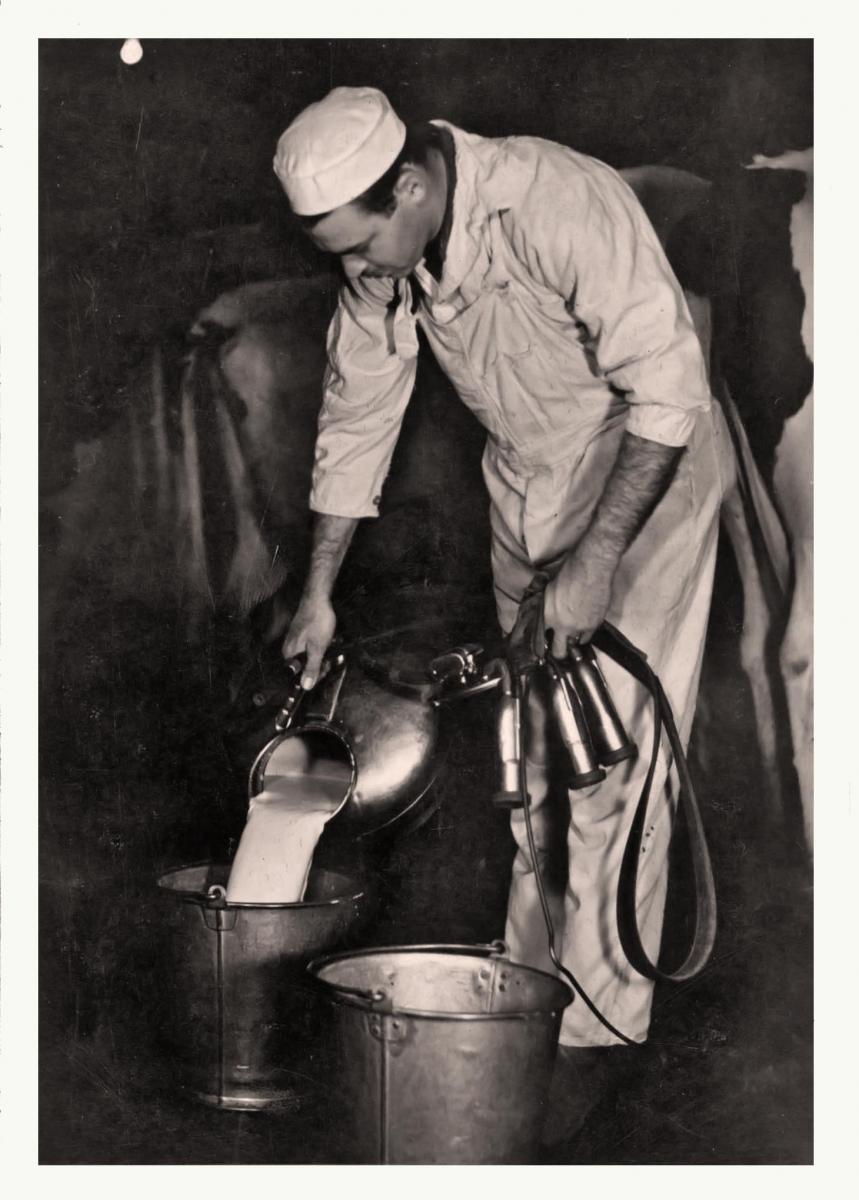 CPS Camp No. 100, subunit 2Civilian Public Service Dairy Farming. Serving to give sufficient quantity of high-quality milk.1943
CPS Camp No. 100, subunit 2Civilian Public Service Dairy Farming. Serving to give sufficient quantity of high-quality milk.1943 -
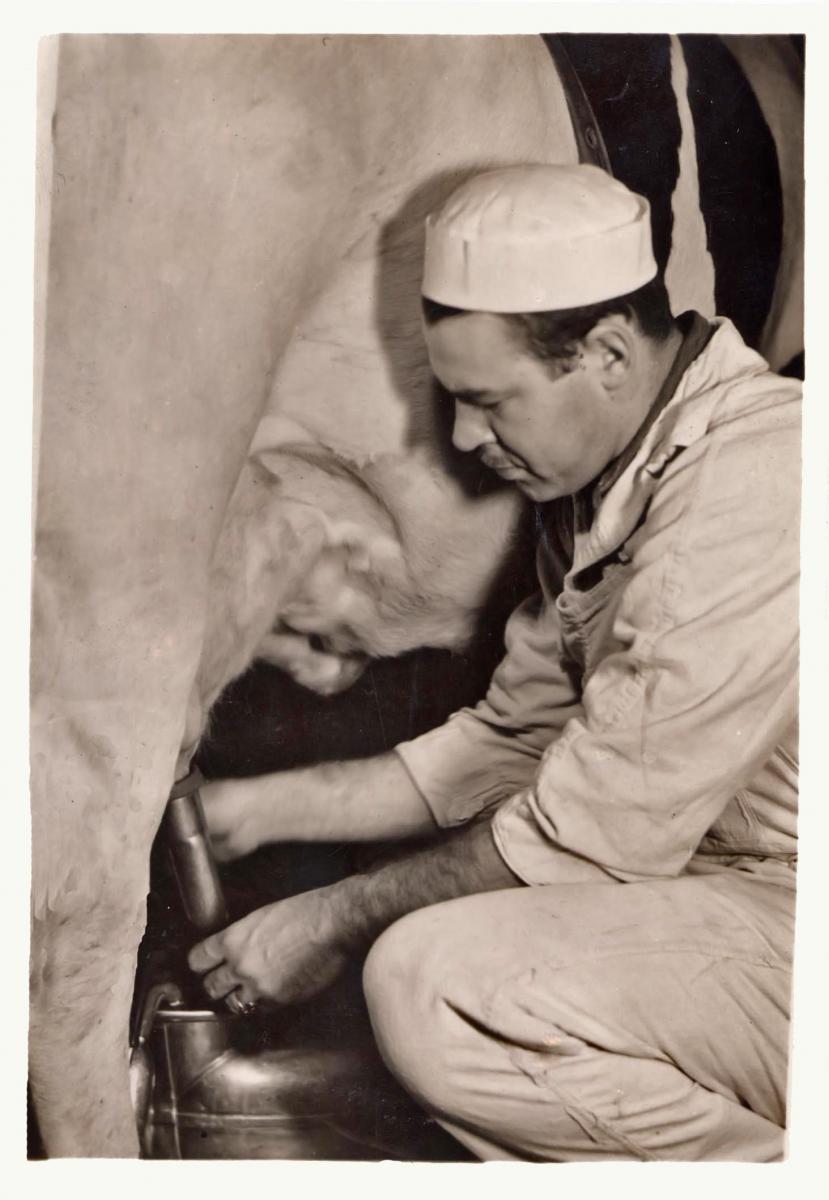 CPS Camp No. 100, subunit 2625 CPS men are working as dairy farmers and as dairy herd testers in 30 different countries in the leading dairy states of the country. The increase and the improvement of the nation's milk supply is the function of this government assigned 'work of national importance.'ca. 1944
CPS Camp No. 100, subunit 2625 CPS men are working as dairy farmers and as dairy herd testers in 30 different countries in the leading dairy states of the country. The increase and the improvement of the nation's milk supply is the function of this government assigned 'work of national importance.'ca. 1944 -
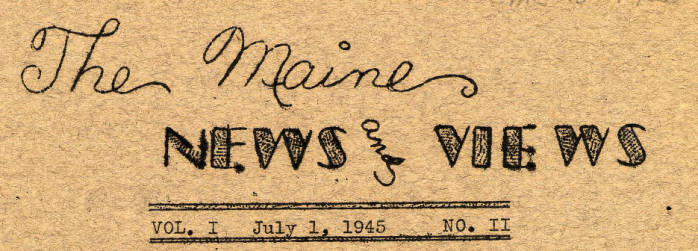 CPS Camps 125 and 100, subunit 6News and Views was a newsletter jointly published between Camps 125 and 100, subunit 6 in 1945.Digital image from the American Friends Service Committee: Civilian Public Service Records (DG 002), Swarthmore College Peace Collection, Swarthmore, Pennsylvania
CPS Camps 125 and 100, subunit 6News and Views was a newsletter jointly published between Camps 125 and 100, subunit 6 in 1945.Digital image from the American Friends Service Committee: Civilian Public Service Records (DG 002), Swarthmore College Peace Collection, Swarthmore, Pennsylvania -
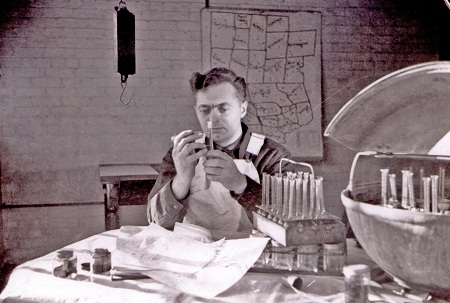 CPS Camp No. 100Dairy Farming: Wilbert L. Moore calibrating butter fat columns to determine the production and index increase of cows through artificial breeding by pure bred-high production and type breed bulls.Digital image from American Friends Service Committee: CPS Records (DG002), Swarthmore College Peace Collection, Swarthmore, Pennsylvania
CPS Camp No. 100Dairy Farming: Wilbert L. Moore calibrating butter fat columns to determine the production and index increase of cows through artificial breeding by pure bred-high production and type breed bulls.Digital image from American Friends Service Committee: CPS Records (DG002), Swarthmore College Peace Collection, Swarthmore, Pennsylvania -
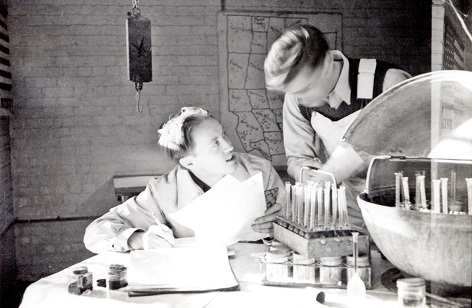 CPS Camp No. 100Dairy Farming: Bemis and Lindes computing the dairy income above feed costs for a recently tested herd. From such information culling is done more efficiently.Digital image from American Friends Service Committee: CPS Records (DG002), Swarthmore College Peace Collection, Swarthmore, Pennsylvania
CPS Camp No. 100Dairy Farming: Bemis and Lindes computing the dairy income above feed costs for a recently tested herd. From such information culling is done more efficiently.Digital image from American Friends Service Committee: CPS Records (DG002), Swarthmore College Peace Collection, Swarthmore, Pennsylvania -
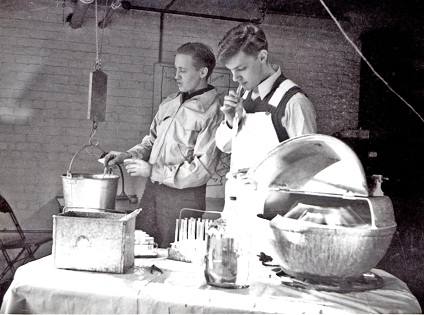 CPS Camp No. 100Dairy Farming: Bemis and Lindes at the laboratory in Litchfield taking composite and individual milk samples and running the Babcock test for butter fat.Digital image from American Friends Service Committee: CPS Records (DG002), Swarthmore College Peace Collection, Swarthmore, Pennsylvania
CPS Camp No. 100Dairy Farming: Bemis and Lindes at the laboratory in Litchfield taking composite and individual milk samples and running the Babcock test for butter fat.Digital image from American Friends Service Committee: CPS Records (DG002), Swarthmore College Peace Collection, Swarthmore, Pennsylvania
-
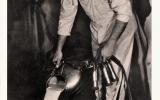 1943
1943 -
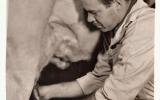 ca. 1944
ca. 1944 -
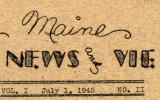
-
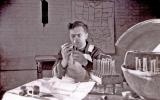
-
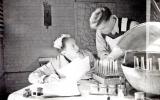
-
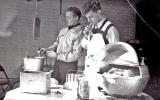
CPS Unit 100, subunit 2, located in Delaware, was operated by the American Friends Service Committee.
A few men performed the more specialized service as technicians and inseminators for artificial breeding associations, one in Delaware and the other in Pennsylvania. The COs traveled from the association headquarters to care for and manage bulls, wash and disinfect equipment, take and distribute semen. All members of the association were able to use the services of the best bulls in the association.
Men hoped that their experience in this specialized unit might prove helpful to relief agencies trying to rebuild the herds destroyed during the war.